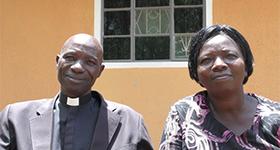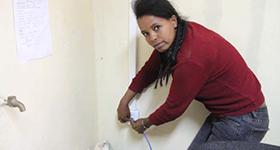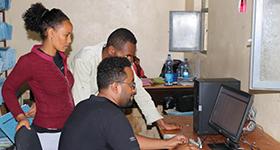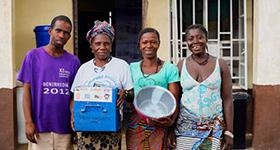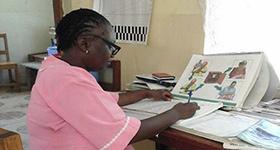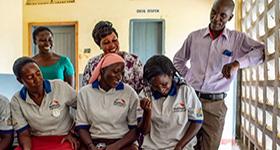Background
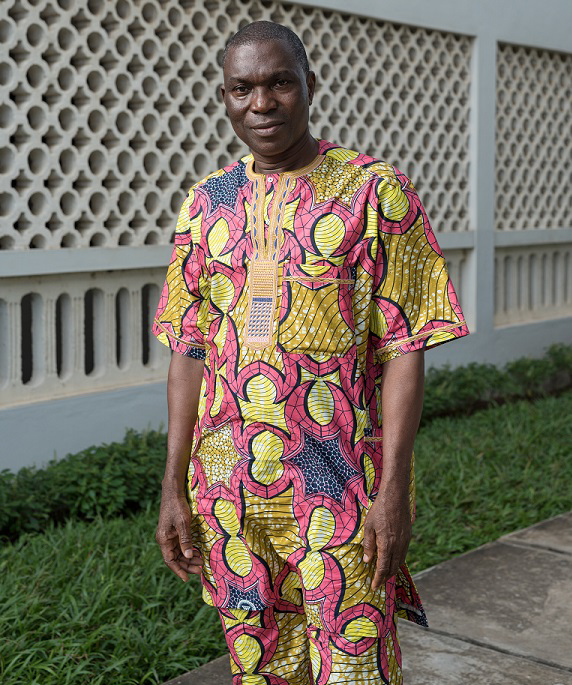
Mayor Bio Sounon Bouco allocated nearly $2,000 for community health activities as part of a plan to improve the health of his population. Photo: Joshua Yospyn/JSI
The district of Tchaourou in northern Benin is home to approximately 50,000 people, many of whom live in rural communities where access to health services is limited. More than 60 percent of inhabitants live further than five kilometers from a health center, and fewer than half of births are delivered at a facility.1
In 2010, Benin’s Ministry of Health (MOH) devised a strategy to reach communities in Tchaourou and other remote areas with health education and services delivered by community health workers (CHWs). Nongovernmental organizations (NGOs) train and supervise CHWs and support local government and community partners in other health-related activities. However, the limited national budget for community health activities, combined with the ebb and flow of NGO funding, threaten the sustainability of community-based services and underscore the importance of finding longer-term funding.
Mr. Bio Sounon Bouco, who has been mayor of Tchaourou since 2008, understands that investing in health programming is critical to his district’s prosperity. Until the USAID-funded Advancing Partners & Communities (APC) project, however, he did not realize the importance of community-based health strategies or how he could support them.
Intervention
Recognizing the need for stronger involvement of local authorities in community health, in 2018, APC raised awareness of community health among municipal authorities in nearly two dozen districts; improved coordination between local health offices and town halls; and strengthened leadership and planning for community health activities.
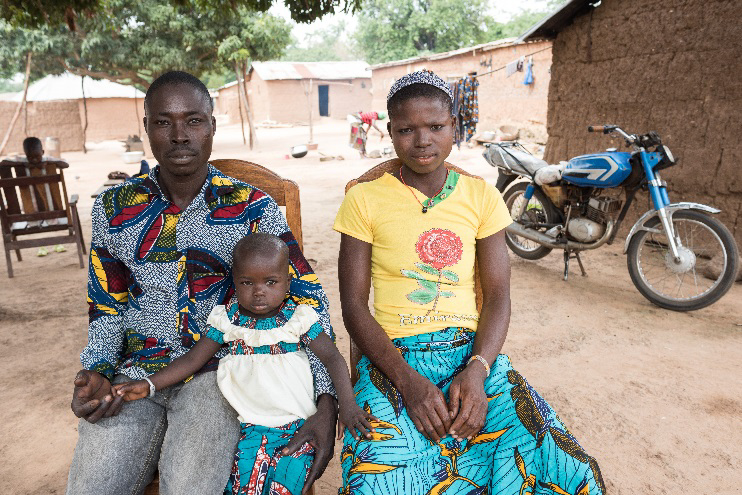
Machoudou Mare Gobi and his wife, Boni Kokpan, receive health services from their CHW in Yakpabé village in Tchaourou. Photo: Joshua Yospyn/JSI
In partnership with local NGOs, APC trained consultants as experts on local governance and financing principles, laws, and procedures in Benin. In turn, these consultants educated mayors, district council members, and other local authorities on the importance of community health and helped them develop and begin implementing costed community health strategies. The consultants also encouraged local authorities to allocate more funding and ensure stronger management of community health and nutrition programs. APC supported the consultants through in-person coaching and monitoring via a WhatsApp forum. To promote longer-term sustainability, the project also trained at least one existing staff member at the mayor’s office to serve as a point person for community health. In addition to his or her normal activities, this individual participates in the dialogue on community health in the district and helps ensure it remains a district priority.
Outcomes
In Tchaourou, a local NGO called Sia N’son, and a trained technical consultant, helped Mayor Bio Sounon Bouco and the district council members understand how they can support community health through planning and management. For example, they realized that without external funding there was no way to continue to provide CHWs with supply kits, so they allocated 1,075 million CFA, (approximately $1,850 USD) to finance the kits and cover the cost of community health activities in 2019. They also added a line item to the district health budget for community health for the next three years.
“I must admit that the NGO enlightened us by explaining our role in community health…we quickly came to realize the importance and decided that the district council should support community health in Tchaourou,” said Mayor Bouco.
Although Benin’s national community health policy calls for mayors to develop budget lines to finance community health interventions, this happens infrequently. Mayor Bouco was the first in areas where APC worked to do so; 17 other mayors have since joined him, allocating a total of approximately $100,000. This funding has potential to improve the health of more than three million people and will reduce local government dependence on NGOs and external donors.
1Annuaire des statistiques sanitaires de la Zone Sanitaire de Tchaourou. 2017

